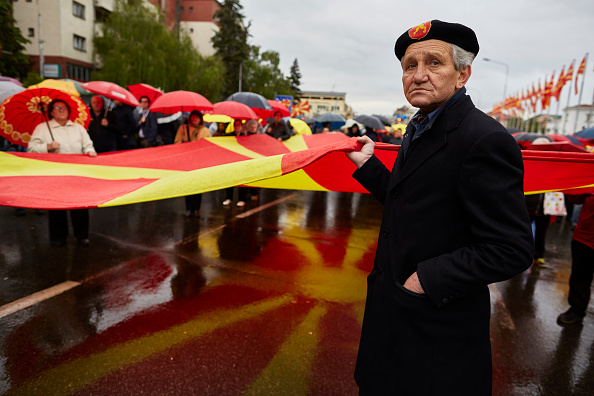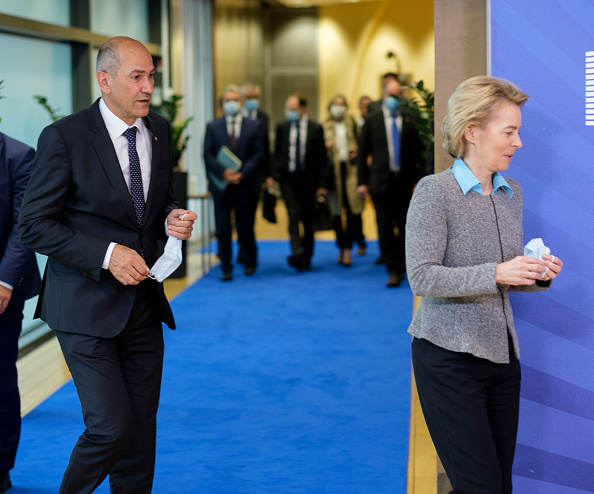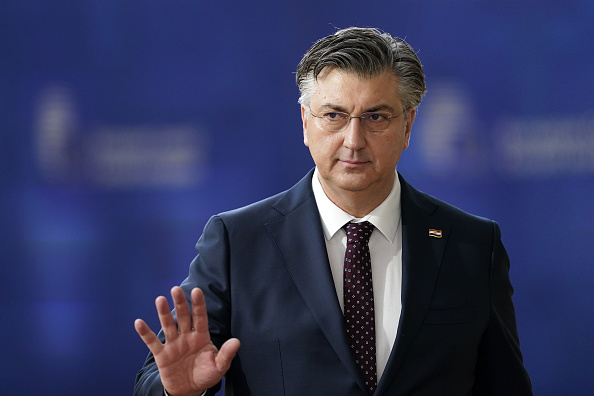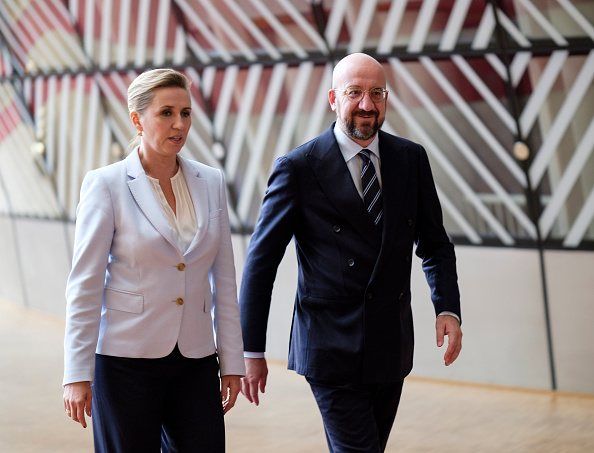Romanian exit polls have suggested the new ultranationalist Alliance for the Union of Romanians (AUR) party has become the country’s main opposition force,
Affiliated with the European Parliament group European Conservatives and Reformists (ECR), it is predicted to have come in second place with 15 per cent.
The AUR, born as an anti-lockdown movement during the Covid pandemic, expanded its appeal by campaigning hard on frustration over the Ukraine war and lack of local jobs. The latter message especially resonated with Romanians abroad, attracting one in four votes from the diaspora, according to LSE professor Magdalena Ulceluşe.
The AUR is now projected to win five of Romania’s European Parliament seats, more than any party other than the governing National Coalition for Romania (CNR).
It has apparently doubled its vote from the lockdown national election of 2020, when it gained 9 per cent.
The governing alliance of the Social Democratic Party (PSD) and National Liberal Party (PNL) chose to run “under a single list in the EP elections, likely aiming to limit potential gains” on the AUR’s part, Teneo analyst Andrius Tursa told Brussels Signal.
The AUR leader George Simion has sought inspiration from former US president Donald Trump with a campaign pledge that included a vow to “make Romania great again”, as well as Vlad the Impaler, when speaking at rallies in front of images of the 15th century leader.
Simion is expected to use the “bounce” of EP elections to stand for president of the country in September. Incumbent Klaus Iohannis, who had been speculated as a possible successor to Jens Stoltenberg as leader at NATO, is ineligible to stand again due to term limits.
The “union” in the party’s name refers to its plan to reunite with neighbouring Moldova, with which it shares a common language. The unification plan attracts between 30 and 43 per cent support in Moldova, where AUR also organises, polls have shown.
Public opinion surveys in Romania indicated general support for the idea as an eventual prospect but also widespread caution as to its potential costs.
Simion had also been fighting off an election fraud case from prosecutors since June 5, which the party leader called politically motivated. “You will not intimidate us, you will not stop us,” he said in a statement on that day.
There is still some chance his AUR may choose to side with the EP’s Identity and Democracy (ID) group, particularly if Hungary’s Fidesz joins the ECR.
Romania’s hard-right SOS RO party, which intended to join the ID bloc, according to the polls would have failed to gain representation in the European Parliament, with 4 per cent.
Likewise, the liberal REPER party – linked to the Renew bloc – is predicted to have lost its five MEP seats, after drawing 3 per cent of the vote.
The EPP-linked, centre-right UDMR party — part of the governing coalition until 2023 — also seemed to have had a record low vote – of 5 per cent.
The EP election has seen Romania’s highest turnout, at 52.4 per cent, of any since the country joined the European Union in 2007, according to officials.
That is seen as partly because local elections were held the same day. A decade ago in 2014, only 32.4 per cent of Romanians voted in European Parliament elections.





